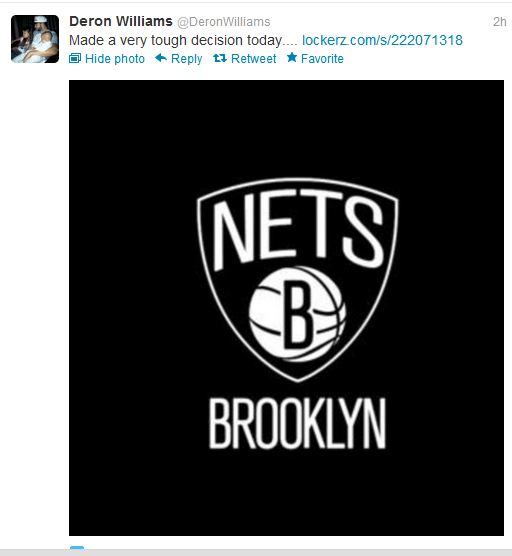In sports, long-term loyalty depends heavily on whether a professional athlete chooses to remain on the same team until their career ends. Unsurprisingly, die-hard loyal fans constantly enjoy when their favorite pro athletes stick with one team for numerous years. However, not every pro athlete can be Derek Jeter, Tim Duncan, Emmitt Smith, and a few of Hall of Famers who have remained with the same team for a long time.
Free agency gives pro athletes the opportunity to sign with whichever team is the best fit for them and their families. Some have regularly moved from city to city where they explore and discover business opportunities, but the fans often label pro athletes as disloyal when they depart from a team or seek a trade for a massive contract.
For instance, first baseman Albert Pujols, who is currently among the best players in Major League Baseball, was the biggest reason why St. Louis Cardinals won the World Series in 2011, but eventually he left the team after the Los Angeles Angels made an offer he couldn’t refuse, and he signed with the Angels for 10-year, $250 million contracts. He seized it. The public quickly judged how disloyal Pujols was.
One sports columnist once inscribed in 2004, “Loyalty to the team has been replaced by loyalty to the dollar. In this materialistic world, dollars are everything. Money drives our sports economy. What’s sad is our heroes might not always be our heroes anymore because they enjoy cash flow rather than fan approval.”
Jerry Seinfeld, an American comedian and actor once indicated, “Loyalty to any one sports team is pretty hard to justify. Fans will be so in love with a player, but if he goes to another team, they’ll boo him.”
Occasionally, the contract itself is not constantly what pro athletes are seeking. Instead, they are seeking a team that can win and earn a ring. LeBron James, now a member of the Cleveland Cavaliers, was an ideal example. He left Cleveland in 2010 to “take his talents” to Miami for two reasons: being teammates with his friends, and winning the NBA championships. Commonly, pro athletes want to win championship in order to earn respect from the fans and media.
How about the owners’ obligation to show loyalty toward pro athletes?
The public occasionally questions owners on whether they have the obligation to show their loyalty to pro athletes. In an effort to understand that several owners perceive his franchise as business operation, the owners expend money to draw a “world of talent” of athletes and win championships. The owners’ disloyalty toward pro athletes could occur when they disagree in a business deal. They disregard the value of loyalty in pro sports these days.
Peyton Manning, who is perhaps the most recognizable football player in the NFL, did a lot for the Indianapolis Colts franchise and community. He brought the Colts home a Super Bowl championship in 2006. When Manning suffered a neck injury, the 2011 season became inadequate. Eventually, when the Colts went into a rebuilding process when they selected Andrew Luck with the number one overall pick in the NFL draft and played a role in the decision to release Manning.
What does it say about owners’ loyalty toward pro athletes who have done for the franchise and its community? Unfortunately, the value of loyalty in pro sports has practically nothing to do with what pro athletes have contributed to the franchise and its community.
While loyalty might be essential in pro sports, the owners focus primarily on improving the franchise rather than loyalty. It is remarkable for pro athletes like Manning to make positive contributions to their organization or community, but it is still the owner’s obligation to do what is the best for the franchise, whether they should keep, trade, or cut pro athletes. It is never personal. It might sound complicated, but it is how professional sports work sometimes.
The public has several different concepts of loyalty in pro sports, but the definition of loyalty in pro sports is not as simple as it seems. It is constantly dazzling to see die-hard fans display their loyalty toward one team they grow up rooting for, but in reality, on the business side, sometimes pro athletes may not want to have anything to do with loyalty in sports. Once the team makes an offer pro athletes can’t refuse, they would seize and sign it.
Accordingly, loyalty in sports is practically forgotten; sports is a business.
Chris Bosh of the Miami Heat told Paul Forrester of the Sports Illustrated in 2010, “There’s no reason to bring loyalty into the business room. People have to look at it as a business. Fans get very wrapped around it because it’s a sport. And sports are a little different but they’re businesses first and that’s how we have to choose sometimes.”
Loyal fans have the right to crticize pro athletes regarding how disloyal they are when they depart the team or seek a trade for massive contract. Simultaneously, the fans need to understand that, when the free agency process is on the line, pro athletes have earned the right to sign whichever team they wish to play for. For pro athletes, business comes first. Conceivably, the fans should not hate the players; hate the game.
[Photo Credit: USATSI]Add The Sports Daily to your Google News Feed!
